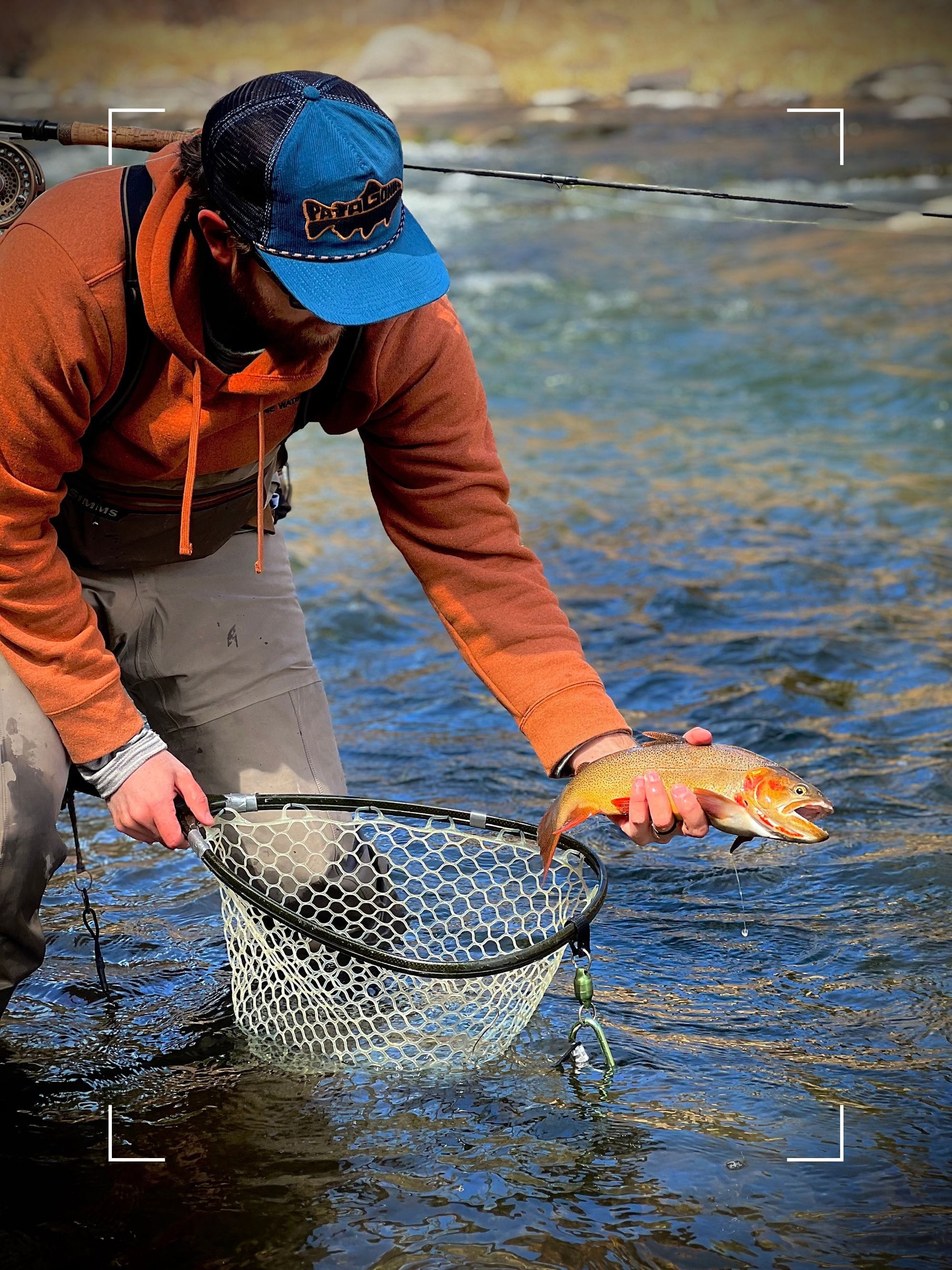Story From the Road: Third Time Makes the Pattern?
Usually great stories start with full cars, open roads, and rigged rods, but this one starts different. This one starts with an internet troll.

June 2023
Usually great stories start with full cars, open roads, and rigged rods, but this one starts different. This one starts with an internet troll.
I usually don't take our social media too seriously, but in one clip where I release a rainbow trout I was confronted with surprising pushback by one commenter. This person was repeatedly heckling me about tormenting fish, suggesting I leave them alone. Now normal people might simply disregard troll comments, but there was something different about this comment that stood out. Like a big flashing warning light this comment highlighted a swirling debate going on within fish science right now, regarding fish pain, sentience and smack dab in the middle are potential ethical dilemmas for recreational fishing.
This commenter was taking one side of the argument, that my fly fishing is impairing the welfare of the individual fish, and that their brains have the capacity to feel pain, and my angling is therefore causing suffering. If true, this is a pretty big blow to recreational fishing. Even personally, part of the reason I like fly fishing is due to what I believe are low impacts on fish. Barbless hooks, catch and release, keep the fish wet, no problem. But some experiments have shown that when fish are injected with a stinging agent, they will move into waters with active pain suppressants for relief. Showing signs of intelligence not previously thought to be perceived by fish.
Now on the other end of the spectrum are scientists suggesting that fish brains don't have certain machinery to comprehend suffering. They point to flaws in the design of the above experiment, and suggest that though fish respond to stimuli and react, they don't experience pain in the same way as shown in humans or other mammals because the fish brains are missing structures that (in humans) perceive pain. And so, the debate is swirling as we speak.
More central to this debate for fly fishers; is the stinging of a hook and playing of a fish enough to cause extremely stressful ramifications in the fish? Mortality studies of the past suggest not, but playing a fish that is terrified and stressed feels devilish. So I ended up taking this troll comment too seriously, and did my homework, trying to get a grasp on the state of the science and where I personally felt the truth was, based on my own experiences.
As many anglers know, the call of the river is magnetic, it's something we can't resist. So soon enough, I found myself out on the river again, chasing a BWO hatch in a beautiful Colorado canyon, with plenty of fish ready to put the past winter behind them. And that's when something surprising happened.
With other Due West crew, we targeted a deeper run where fish were stacked up, some looking to the surface, while others darted in between lanes snatching emerging nymphs. Within two casts we each had hooked and landed fish. I happened to be the lucky one, landing a distinct Snake River Cutthroat. Somewhere between 16-18", this fish had vibrant orange fins and really stood out amongst the usual rainbows and browns. Even more unusual is that after another 30 minutes, I hooked and landed the exact same fish, from a similar lane within the run. Definitely weird, but not unheard of. In fact, I had just talked with someone else who'd hooked and released the same fish with his buddy on a different river, within 15 minutes...allegedly. But now I'd experienced the same first hand.
We decided to change tactics and target the rising fish further downstream for a while, but after doing some rigging experimentation and deciding to head back up-gradient, my fishing partner found herself in the first original run with yet another Snake River Cutthroat on the end of her line. Could it be? A quick examination of the spotting pattern, yup... that's the same fish. Hooked 3 times in 3 hours, and still coming back for more.
What's so interesting about this account is the timing of it surrounding the topic at hand, and the implications. Admittedly only one fish, in one instance, this account highlights that when conditions are favorable, (water temps, available food), this fish wasn't so bothered by our encounter that it ruined his meal. At least that's my interpretation.
Though science doesn't have the answer yet, I think all anglers should take time to reflect on animal welfares, ethics, and consider how our actions are perceived by fish. As far as the science goes, the verdict is still out regarding fish cognitive function of pain perception. Though undoubtedly fish respond to pain, many scientists question how detrimental recreational angling is to fish suffering. Differences in brain composition and pain receptors between birds, mammals vs fish don't paint a clear picture of how individuals respond or feel negative stress. But it's important not to anthropomorphize how we feel or percept pain and broadly apply our emotional understanding across different species. Simply, the human brain isn't comparable to other species brains, therefore it's dangerous to make assumptions about how we perceive the world and apply that to other species. But that applies on both sides of this argument. Yet, as one study put it "Our results confirm the results of previous studies, showing that prerelease air exposure and handling cause more physiological stress than does either hooking per se or playing time". So as scientists and anglers continue to broaden our understanding we must maintain the utmost respect for fish and reduce handling time and air exposure.


